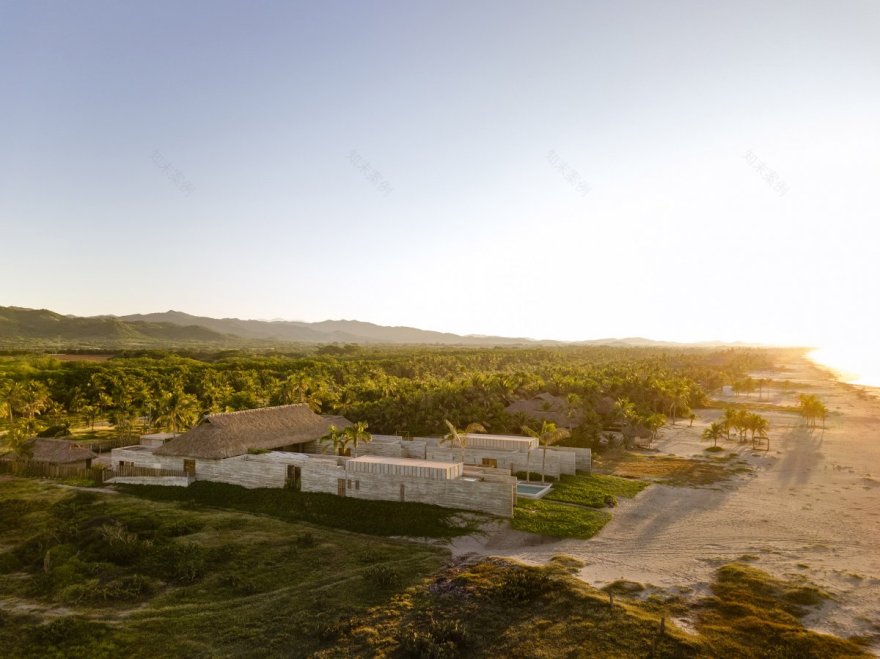查看完整案例

收藏

下载
建筑事务所Anonimous从前殖民时期的Casa Cova建筑设计中获得灵感,这是一座由混凝土、帕罗塔木和干棕榈叶建造的庞大的海滨别墅。Casa Cova位于Puerto Escondido,墨西哥Oaxaca州的一个沿海城镇,该项目被设计为一个两家庭度假住宅,包括创建两个不同的私人房间,通过公共娱乐区域连接。
Anonimous took inspiration from the design of Casa Cova, a sprawling beachfront villa made of concrete, parota wood and dried palm leaves. Casa Cova is located in Puerto Escondido, a coastal town in the Mexican state of Oaxaca,The project program was designed as a two-family vacation home, which involved the creation of two different compounds of private rooms that are connected through common recreational areas.
住宅由两个主要部分组成:一个大的中央公共区域和位于地块一侧的两个平行的扶手,其中包含私人套房。大规模的中央体量标志着进入住宅的入口,其中有两个主要的侧入口,通过格子墙,帮助公共空间通风,并创造了从黄昏到黎明的动态光线模式。
The house consists of two main parts: a large central common area and two parallel arms located on the side of the lot containing the private suites. The large-scale central volume marks the access to the house, which has two main side entrances that pass through a lattice-wall, helping to ventilate the common spaces and creating a dynamic light pattern from dusk to dawn.
这个中心体量体现在一个高天花板的多用途公共空间中,包含一个客厅、一个餐厅和一个酒吧。建筑顶部有一个30米长的“palapa”,这是一种由干燥的棕榈叶制成的区域树篱技术,它可以将热带温度降低到23°C左右,提供阴凉和空间,让热量通过框架的顶部发散。
This central volume is embodied in a high-ceilinged multipurpose public space containing a living room, a dining area and a bar. The volume is crowned by a 30-meter long 'palapa', a regional hedging technique made from dried palm leaves, which cools tropical temperatures down to around 23 ° C providing shade and space for heat to escape through the top of the frame.
Architect:Anonimous
Photos:RafaelGamo
Words:倩倩
客服
消息
收藏
下载
最近





















